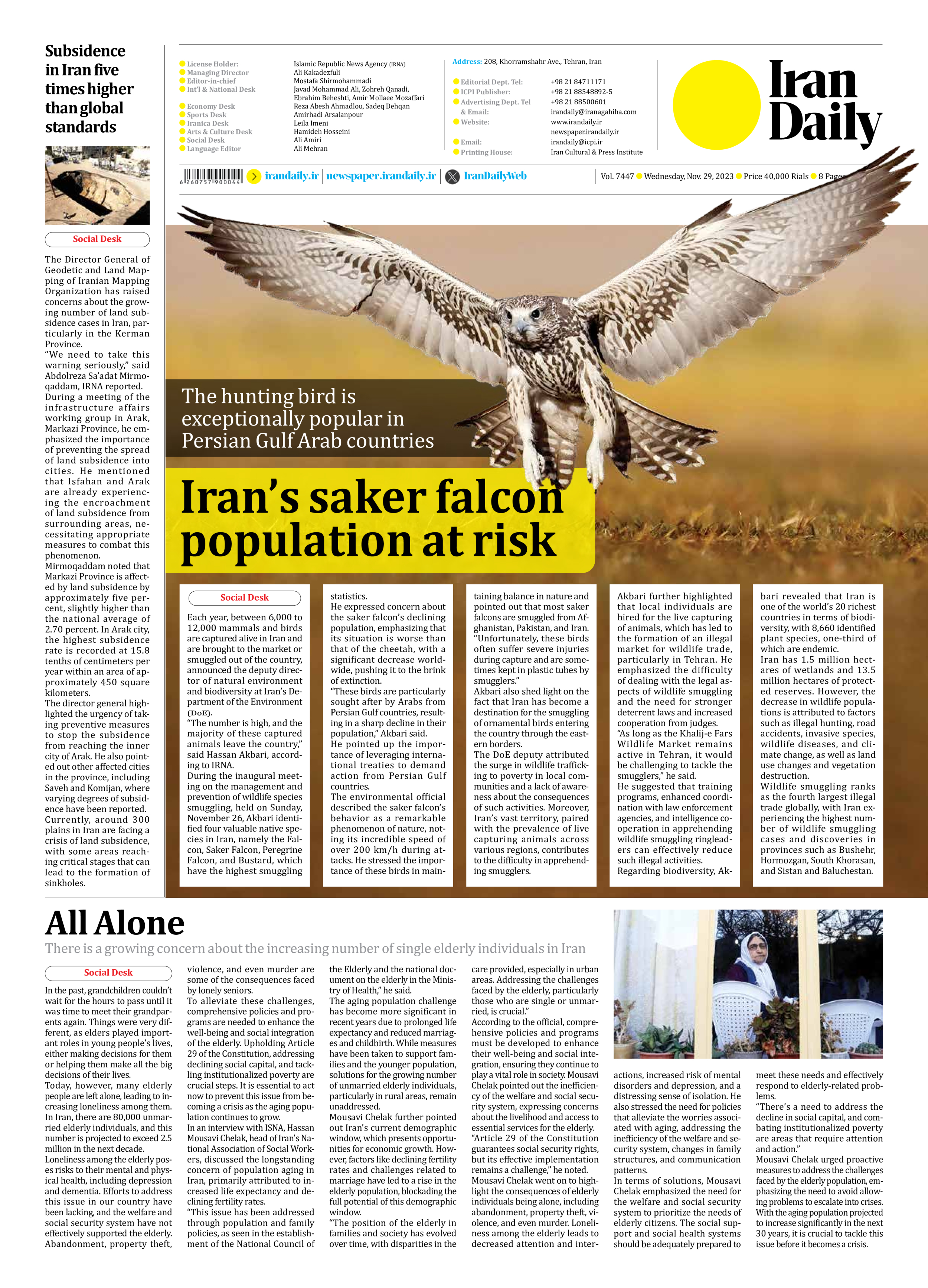
All Alone
There is a growing concern about the increasing number of single elderly individuals in Iran
In the past, grandchildren couldn’t wait for the hours to pass until it was time to meet their grandparents again. Things were very different, as elders played important roles in young people’s lives, either making decisions for them or helping them make all the big decisions of their lives.
Today, however, many elderly people are left alone, leading to increasing loneliness among them. In Iran, there are 80,000 unmarried elderly individuals, and this number is projected to exceed 2.5 million in the next decade.
Loneliness among the elderly poses risks to their mental and physical health, including depression and dementia. Efforts to address this issue in our country have been lacking, and the welfare and social security system have not effectively supported the elderly. Abandonment, property theft, violence, and even murder are some of the consequences faced by lonely seniors.
To alleviate these challenges, comprehensive policies and programs are needed to enhance the well-being and social integration of the elderly. Upholding Article 29 of the Constitution, addressing declining social capital, and tackling institutionalized poverty are crucial steps. It is essential to act now to prevent this issue from becoming a crisis as the aging population continues to grow.
In an interview with ISNA, Hassan Mousavi Chelak, head of Iran’s National Association of Social Workers, discussed the longstanding concern of population aging in Iran, primarily attributed to increased life expectancy and declining fertility rates.
“This issue has been addressed through population and family policies, as seen in the establishment of the National Council of the Elderly and the national document on the elderly in the Ministry of Health,” he said.
The aging population challenge has become more significant in recent years due to prolonged life expectancy and reduced marriages and childbirth. While measures have been taken to support families and the younger population, solutions for the growing number of unmarried elderly individuals, particularly in rural areas, remain unaddressed.
Mousavi Chelak further pointed out Iran’s current demographic window, which presents opportunities for economic growth. However, factors like declining fertility rates and challenges related to marriage have led to a rise in the elderly population, blockading the full potential of this demographic window.
“The position of the elderly in families and society has evolved over time, with disparities in the care provided, especially in urban areas. Addressing the challenges faced by the elderly, particularly those who are single or unmarried, is crucial.”
According to the official, comprehensive policies and programs must be developed to enhance their well-being and social integration, ensuring they continue to play a vital role in society. Mousavi Chelak pointed out the inefficiency of the welfare and social security system, expressing concerns about the livelihood and access to essential services for the elderly.
“Article 29 of the Constitution guarantees social security rights, but its effective implementation remains a challenge,” he noted.
Mousavi Chelak went on to highlight the consequences of elderly individuals being alone, including abandonment, property theft, violence, and even murder. Loneliness among the elderly leads to decreased attention and interactions, increased risk of mental disorders and depression, and a distressing sense of isolation. He also stressed the need for policies that alleviate the worries associated with aging, addressing the inefficiency of the welfare and security system, changes in family structures, and communication patterns.
In terms of solutions, Mousavi Chelak emphasized the need for the welfare and social security system to prioritize the needs of elderly citizens. The social support and social health systems should be adequately prepared to meet these needs and effectively respond to elderly-related problems.
“There’s a need to address the decline in social capital, and combating institutionalized poverty are areas that require attention and action.”
Mousavi Chelak urged proactive measures to address the challenges faced by the elderly population, emphasizing the need to avoid allowing problems to escalate into crises. With the aging population projected to increase significantly in the next 30 years, it is crucial to tackle this issue before it becomes a crisis.







